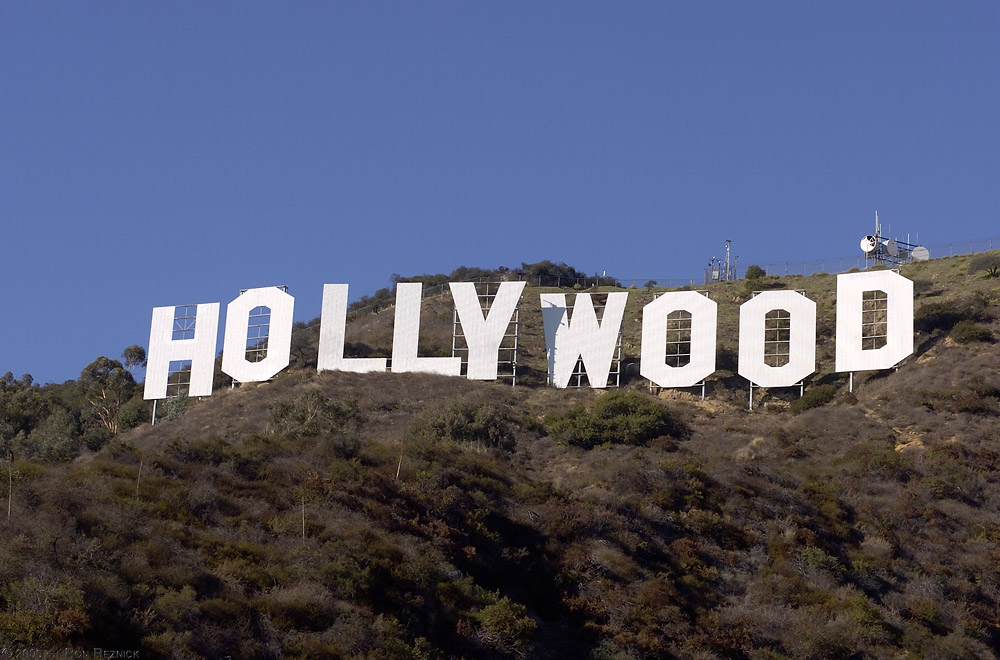Writers face faceless enemy
Corporations putting Hollywood in check
"Here's what's creepy about this war," one striking writer told me last week. "I know who my allies are, but I don't really know my enemy."The writer has a point. In Hollywood's past labor clashes, the "enemy" -- usually a studio titan -- was front and center. It may have been Louis B. Mayer or Walt Disney or, still later, Lew Wasserman, but it was always clear who loomed at the other end of the bargaining table.
In the present dispute, all of the various corporate leaders have been careful in avoiding center stage. It's clearly a case of the writers versus "Them."
The "Them," to be sure, are the multinational corporations that own Hollywood. Indeed, the strike represents yet another episode of a series of events this year that have reminded Hollywood that it's but a small cog in the global assembly line.
The "congloms," as Variety likes to call them, have dominated the news in '07. The box office triumphs of the summer tentpole movies reflected the successful strategy of the congloms. So did the giant Internet deals involving the MySpaces of the world. So did the dust-up between Viacom and DreamWorks, in which Steven Spielberg's presence in the corporate hierarchy was described as "immaterial." So did the "dismissal" of Tom Cruise and the appointment of corporate marketing apparatchiks to top production posts at one studio after another.
To a major degree, the writers strike itself (and follow-up clashes) are being fueled not by movies or TV, but by the money and power of the congloms and by their potential stranglehold over future technologies.
All this carries a degree of culture shock for the town's older writers and artisans. They can remember when Hollywood was a town built around its Dream Factories. Film was its economic base and, despite ties to New York bankers, its management base was in Hollywood.
Today, as the events of '07 remind us, Hollywood is a mere plaything of the international congloms, and Hollywood product represents a relatively minor sector of the product line. Today's managers are a far cry from the Louis B. Mayers or Lew Wassermans of old. Indeed, to a growing degree, they don't even want to be part of the scene.
Sony's Sir Howard Stringer spends more time in Tokyo than Culver City. Jeff Bewkes, the new Brahmin of Time Warner, is a skilled corporate warrior with ties to New York and to TV and technology. Viacom's future leadership is a topic of endless speculation.
And then there's the fascinating case of News Corp., where Rupert Murdoch, 76, is on his way to moving his 34-year-old son, James, to take the reins of the family's giant media monolith. The young Murdoch's rise to power places in doubt the future of Peter Chernin, surely one of Hollywood's smartest operators, but whose deal as COO of News Corp. is up in summer '09.
The symbolism of all this is imposing. Chernin is one corporate hierarch who, while climbing the ladder, has occupied almost every type of marketing and production job. By contrast, the young Murdoch has spent his time at BSkyB, the British satellite TV firm.
And as the Economist reminded us last week, some important shareholders are uneasy about the prospect of someone so light on experience taking the reins of a major international conglom.
Already, says the Economist, the young Murdoch's allies are taking control of Rupert's newest acquisition, The Wall Street Journal. Chernin reportedly had limited enthusiasm for the deal -- Murdoch paid a 65% premium for the Dow Jones package.
The James Murdoch-Peter Chernin scenario reflects yet another chapter in the long-term melodrama over "Who Runs Hollywood?" It also adds another layer to the question asked by the striking writer -- namely, who is the "enemy?"
The corporate players making the decisions about Hollywood's future may increasingly be individuals for whom Hollywood itself is "immaterial" (in Viacom's immortal words).
The seemingly limitless wealth and resources of the global congloms may represent a tempting target for guild negotiators. But those very same resources may also constitute the reason why life at the bargaining table may become increasingly rigorous.
Which idealist from the past said, "I have seen the future and it works"? Well, the typical striker may revise that to "I have seen the future and it's scary."

